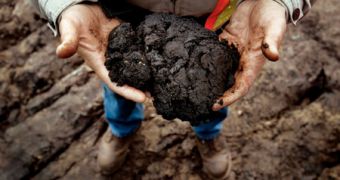Quite a lot of people in the United States are currently busy voicing their complaints against the exploitation of Canada's tar sands. However, it would appear that they might want to start focusing their attention somewhat closer to home.
Thus, media reports say that a company based in Calgary, Alberta has been given permission to exploit tar sands in the United States, and is now getting ready to move forward with this initiative.
Despite its origin, the company in question is called US Oil Sands, and the region that it has its eyes set on is Utah's Uintah Basin.
More precisely, the company reportedly holds leases on a little over 32,000 acres (some 12,950 hectares) in said part of the country, and also a permit allowing it to strip Utah's tar sands reserves of 2,000 barrels of oil on a daily basis.
In order to extract oil in the aforementioned state, the company will first have to dig up semi-solid tar sands. These lumps must then be crushed and mixed with hot water.
A cocktail whose chief ingredients are water and oil, to which air is added, is obtained in this manner. Thanks to the air bubbles, the oil floats to the top and can eventually be collected.
Otherwise put, the process is fairly complicated, uses up quite a lot of water, and also results in the production of a considerable amount of waste.
“It takes approximately four tons of sand and four barrels of fresh water to make a barrel of oil, which is the equivalent of about 42 gallons. The amount of water the process uses is of particular concern in Utah, where water is scarce,” Think Progress explains.
“Extracting and burning tar sands oil also produces a byproduct called 'petcoke' – a coal-like, high-sulfur, high-carbon solid that burns dirtier than coal. It also tends to get stored in huge piles that can release huge, dirty dust clouds on unsuspecting residents,” the publication adds.
Consequently, greenheads not only do not approve of this practice, but would also very much like to see it banned on a global scale.
More so given the fact that exploiting tar sands in this manner has been documented to produce about three times more greenhouse gas emissions than conventional methods of producing oil do.

 14 DAY TRIAL //
14 DAY TRIAL //